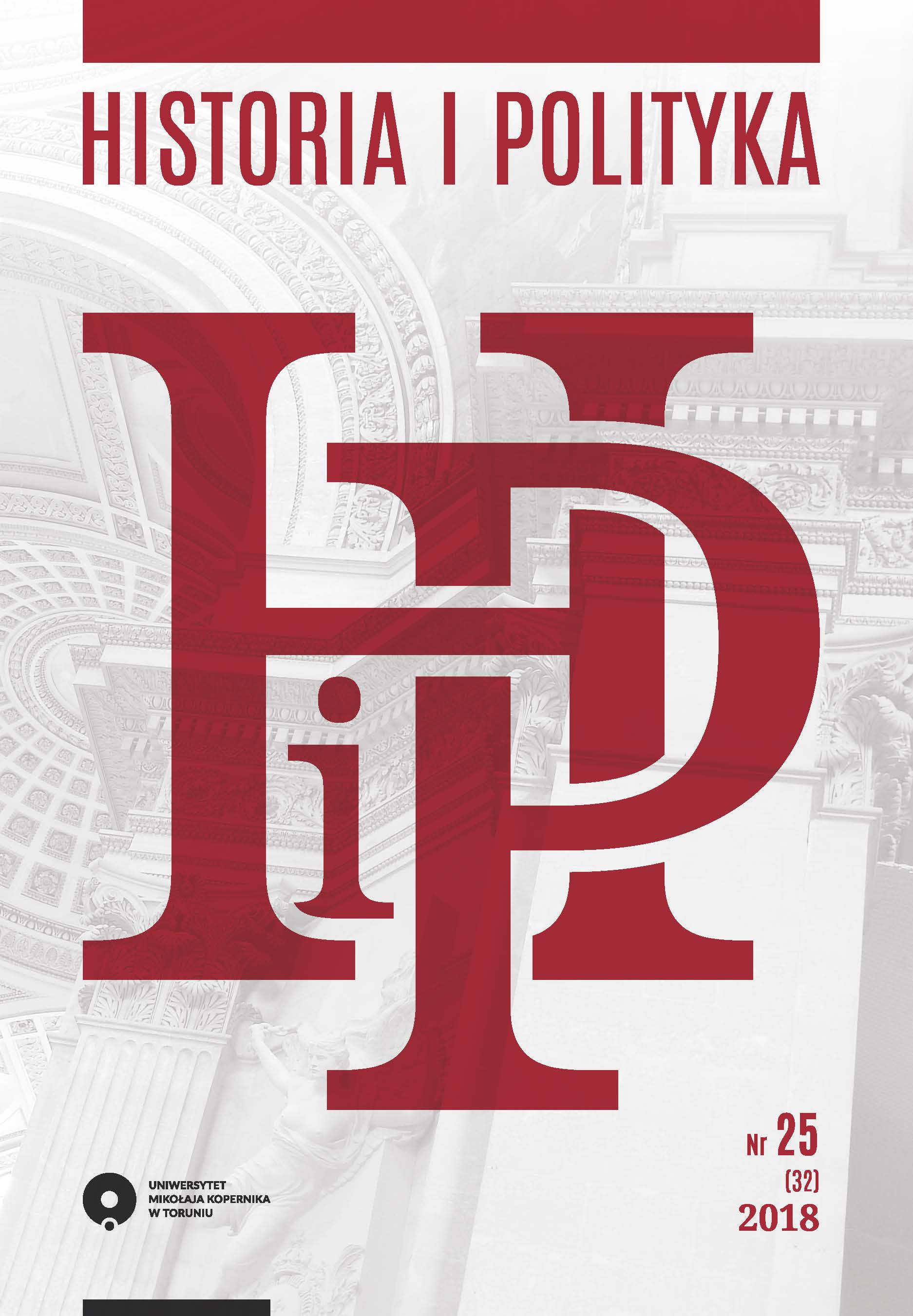System hegemoniczny w ujęciu realizmu strukturalnego
DOI:
https://doi.org/10.12775/HiP.2018.026Keywords
unipolaryzm, hegemonia, równowaga sił, neorealizm, Waltz, MearsheimerAbstract
The paper presents the reflections of representatives of American neorealism on the topic of unipolar distribution of power in the international system. The author discusses the concepts of the balance of power and hegemonic stability, which served as foundations on which the referenced authors formulated own hypotheses regarding potential for durability and peacefulness of a system dominated by one superpower. The article also presents opinions of various neorealists on the international situation post-Cold War and distribution of power in the modern world.References
Czaputowicz, J. (2008). Teorie stosunków międzynarodowych. Krytyka i systematyzacja. Warszawa: Wydawnictwo Naukowe PWN.
Déclaration de M. Hubert Védrine, ministre des affaires étrangères, sur les relations internationales depuis l’effondrement de l’URSS, les équilibres géostratégiques et la sécurité internationale, Paris le 3 novembre 1999. Pobrane z: http://discours.vie-publique.fr/notices/993002965.html.
Gałganek, A. (1992). Zmiana w globalnym systemie międzynarodowym. Supercykle i wojna hegemoniczna. Poznań: Wydawnictwo Naukowe UAM.
Kondrakiewicz, D. (2015). Między porządkiem a chaosem. Fazy nierówności systemu międzynarodowego. Lublin: Wydawnictwo Uniwersytetu Marii Curie-Skłodowskiej.
Krauthammer, C. (1990). The Unipolar Moment. Foreign Affairs, 70, 1: America and the World 1990/91, 23–33. DOI: 10.2307/20044692.
Mearsheimer, J.J. (1990). Back to the Future. International Security, 15, 1, 5–56. DOI: 10.2307/2538981.
Mearsheimer, J.J. (2001). The Tragedy of Great Power Politics. New York: W.W. Norton & Company.
Mearsheimer, J.J. (2004). Why China’s Rise Will Not Be Peaceful. Pobrane z: http://mearsheimer.uchicago.edu/pdfs/A0034b.pdf.
Monteiro, N.P. (2014). Theory of Unipolar Politics. New York: Cambridge University Press.
Morgenthau, H.J. (1948). The Balance of Power. W: K. Thompson (1895) (red.), Realist Tradition Theories (s. 237–357). Pobrane z: https://blackboard.angelo.edu/bbcswebdav/institution/LFA/CSS/Course%20Material/SEC6302/Readings/Lesson_5/Morgenthau.pdf.
Tomczyńska, A. (2012). Czy teoria hegemonicznej stabilności jest teorią polityki zagranicznej? W: E. Haliżak, M. Pietraś (red.), Poziomy analizy stosunków międzynarodowych (s. 177–192). T. 2, Warszawa: Wydawnictwo Rambler.
Waltz, K. (2000). Structural Realism After the Cold War. International Security, 25, 1, 5–41.
Waltz, K. (2010). Struktura teorii stosunków międzynarodowych. Warszawa: Wydawnictwo Naukowe SCHOLAR.
Waltz, K. (1993). The Emerging Structure of International Politics. International Security, 18, 2, 44–79.
Wohlforth, W. C. (1999). The Stability of a Unipolar World. MIT Press Journal. Pobrano z: https://www.jstor.org/stable/2539346?seq=1#page_scan_tab_contents.
Downloads
Published
How to Cite
Issue
Section
License
Nicolaus Copernicus University fully respects the right to privacy and protection of personal data of all authors. The authors’ personal data is not used for commercial and/or marketing purposes.Stats
Number of views and downloads: 807
Number of citations: 0



